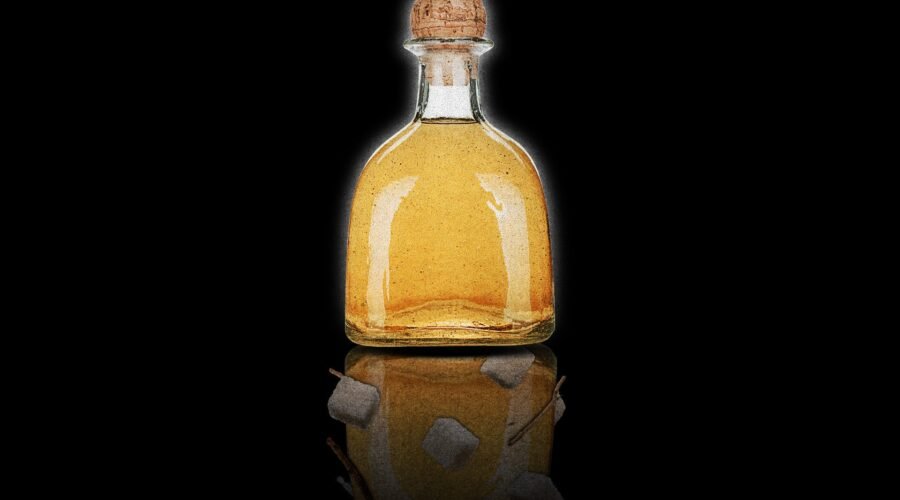The Fight Over Additive-Free Tequila Heats Up
The fight for greater transparency around additives in spirits—and tequila in particular—has escalated in recent weeks.
At the center of the issue is a growing movement to encourage tequila producers to omit additives from the spirit, and to force those using additives to disclose that usage. These additives include sweetening syrups, caramel coloring, glycerin and oak extracts intended to make a tequila seem smoother, older or sweeter.
Grover and Scarlet Sanschagrin, the Guadalajara, Mexico-based founders of Tequila Matchmaker, are at the forefront of those advocating for tequila brands to disclose additive use. Earlier this year, their efforts yielded a run-in with Mexico authorities. According to local news reports, the Sanschagrins’ home—which housed lab equipment used to test for additives—was entered on Wednesday, March 27, under a search warrant. Hundreds of pieces of equipment were confiscated from the property, under the accusation it was being used for illegal distillation.
You May Also Like: A Step-by-Step, Beginner’s Guide to Tequila
This unfolded just two days after the Sanschagrins hosted a tasting seminar in New York City sponsored by Mijenta Tequila for journalists and other industry pros. I was one of the writers in the room, there to learn more about what tequila tastes like with and without additives.
The Sanschagrins declined to comment on the recent situation. “We are not talking about it at this time under our lawyers’ advice,” they said. “We hope it will be resolved soon.” Mexico’s Tequila Regulatory Council (Consejo Regulador del Tequila, or CRT) did not respond to a request for comment.
Behind the Standoff
Understanding this sequence of events requires an understanding of the current tequila landscape. In 2020, Tequila Matchmaker launched an Additive-Free Program (rebranded in 2023 as the Additive-Free Alliance). The program is voluntary; distilleries that opt in grant access to Matchmaker to inspect their operations, review production records and conduct analysis to confirm that a brand or distillery does not use additives in making tequila. Brands pay for the analysis and need to renew certification annually.
“It’s about transparency,” said Grover Sanschagrin, speaking in New York City last month. It’s also about preventing “unrealistic expectations” about consistency or perception of “smoothness” in tequila. “Tequila is a natural product,” he added.
You May Also Like: The 16 Best Sipping Tequilas to Enjoy Right Now
More than 100 brands are confirmed in the database as additive-free. However, of all companies that apply for testing, about 80% fail the test, Sanschagrin said. According to Tequila Matchmaker, about 70% of tequilas on the market use additives, he added.
Meanwhile, the CRT takes a less stringent approach. Distilleries are expected to keep a written log that specifies whether additives are used or not, and supply that record to the CRT upon request. Compliance is on an “honor system,” Sanschagin explained, which he believes often does not yield transparency.
The two organizations co-existed, somewhat uneasily, until 2023, when the Additive-Free Alliance began issuing physical “Zero Additives” stamps, which many tequila brands added to their bottles. Within months, the CRT denounced the independent program, and demanded the stickers be removed. The CRT also recently announced an initiative to create a similar additive-free verification program of its own.
What This Means for Your Tequila
In brief, the events of recent weeks signal that the anti-additives drumbeat has grown louder. Consumers and retailers are requesting additive-free tequila, and more brands are going through certification.
At Brooklyn retailer Fiasco! Wine & Spirits, co-owner Ivy Mix notes that she deliberately seeks out additive-free tequila to stock in her store. “It’s a huge factor,” she said. “This is the course everyone’s trying to get on right now.” Her buying decisions are based on her own research and interactions with tequila producers and importers, not Tequila Matchmaker ratings, she noted.
In turn, recommendations like those from Fiasco’s staff ultimately impact what customers purchase; the same is true at Leyenda, the Brooklyn bar she also co-owns. For example, when a customer asks for a specific brand they regard as smooth, “we have to explain that smoothness is glycerin, among other things,” and suggest an alternative, additive-free bottle. “We use it as an educational moment,” she said.
You May Also Like: The Best Tequilas for Gifting Right Now
Of note, tequila isn’t the only spirits category that uses additives. For example, rum and Cognac often include sugar and/or caramel coloring, explained Nicolas Palazzi, owner of importer PM Spirits, but those categories have the advantage of not being required to print that information on labels. (This may change for all alcoholic beverages in the U.S., if a new regulation proposed in January becomes law.)
What has changed, he observes, is that influencers have become more vocal about the issue, amplifying messages like those of Tequila Matchmaker.
“They’re voicing their feelings pretty hard on social media,” he says. “This creates more awareness, which pushes retailers and buyers to likely pay more attention.” As a result, Palazzi predicts, the additive-free movement is likely to become even stronger in coming years.
Published: April 11, 2024


